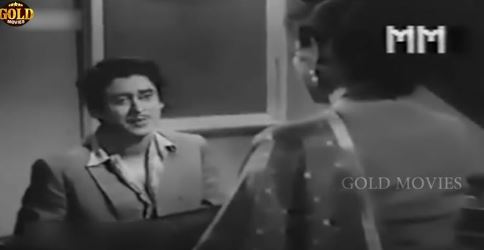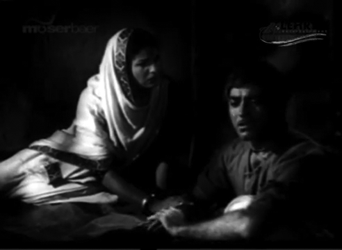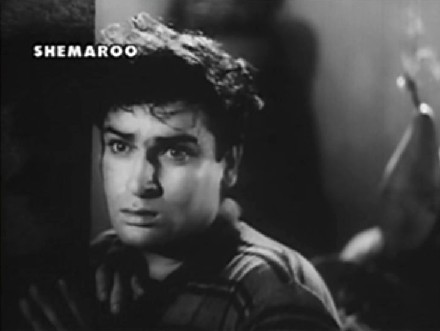One review suffices for two films, really. Jagriti was an Indian film, Bedari a Pakistani one. Why I say one review suffices is because Bedari was a blatant copy of Jagriti: so blatant that when Pakistanis cottoned onto the fact that it was a copy, there was a furore which resulted in the Federal Board of Film Censor in Pakistan banning Bedari.
I’ll discuss the synopsis by looking at Jagriti, since Bedari used exactly the same plot, down to the scenes.
Jagriti begins by introducing us to the very wild teenager Ajay Mukherjee (Raj Kumar), who spends his after-school time gallivanting around the village with his gang of equally wild friends. They steal mangoes from an orchard and leave the irate gardener with a bump on his head; Ajay slips onto a ferry and deprives a banana-seller of an entire day’s worth of bananas.
By the time Ajay gets home, his uncle (Bipin Gupta) has been besieged by some very upset villagers. He’s had to soothe them, pay up their damages, and promise that the situation will be amended.










